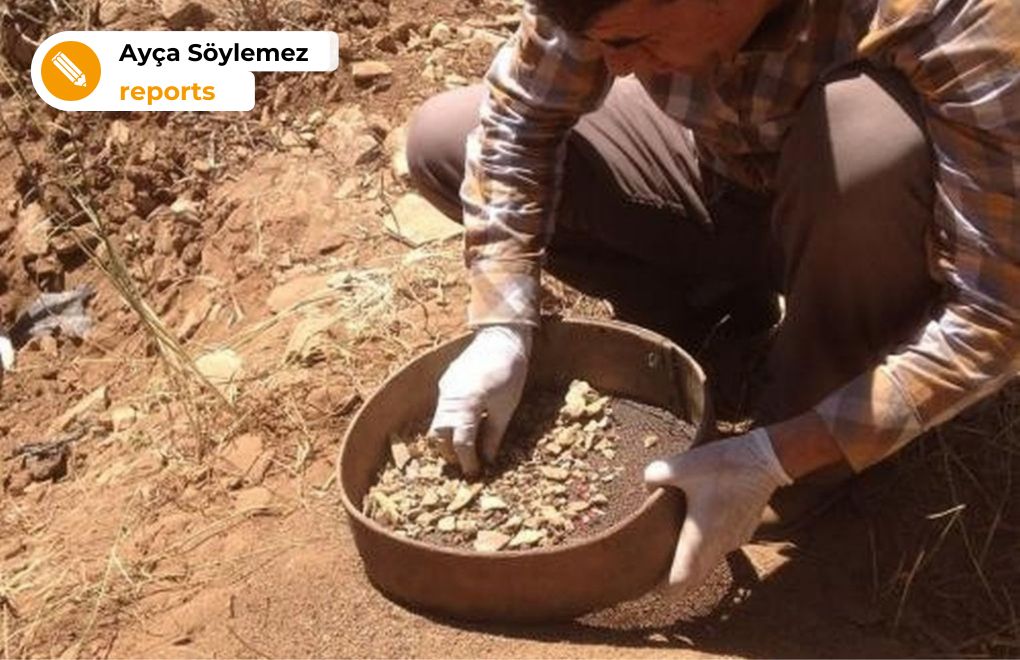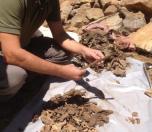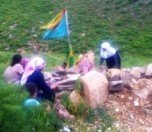Click to read the article in Turkish / Kurdish
After the application to the Constitutional Court regarding the mass grave found in Van, Çatak was rejected, attorney Turan Ece applied to the European Court of Human Rights (ECHR) on behalf of Cevdet Tatar, whose brother was among those who lost their lives in the region.
The families' legal struggle regarding receiving the bones of their family members has been continuing since 2011. Their family members lost their lives during the clashes that broke out on the Andiçen highland of Kayaboğazı village of Van Çatak on October 22, 1998.
The decision of non-prosecution after 9 years
Several security officers and Kurdistan Workers' Party (PKK) members lost their lives in the armed clashes that erupted in Çatak, Van in 1998.
While the bodies of the deceased security officers were collected from the battleground, PKK members' bodies were left there. According to official sources, 22 PKK members lost their lives in the clashes. However, the PKK announced they had 27 losses.
Cevdet Tatar's brother, Hozan Hogir, was among those PKK members left on the battleground. Tatar's application to the Çatak Chief Public Prosecutor's Office to receive the remains of his brother was delayed for 9 years without any action, and a decision of non-prosecution was rendered on February 27, 2020.
A gendarmerie document that was signed by Kayaboğazı Gendarmerie Station Command Specialist Senior Sergeant F.Ö. was presented to the court regarding the case of a mass grave belonging to PKK members from 1998 and the document admits the killing of 22 people. Lawyer Turan Ece, in a statement to bianet, said that this document also shows that the gendarmerie forcibly disappeared people by killing them. In the case filed by families who wanted to receive the bones of their relatives, the court ruled that the bones should be handed over to the Sub-governor's Office because the families failed to pay the 40,000 lira "retainer fee."
CLICK - Mass grave in Van: 'All they want is their children's bones'
CLICK - Gendarmerie Admits Killing, Disappearance
"Family of the deceased are punished"
In the application submitted by Ece to the ECtHR, it was underlined that the "right to mourn" was violated.
"It is a crime against humanity under the "1984 UN Convention Against Torture and Other Cruel, Inhuman or Degrading Treatment or Punishment" and "European Convention for the Prevention of Torture and Inhuman or Degrading Treatment or Punishment" and therefore the statute of limitations will not apply."
"It is clear that leaving and not returning the bodies of the illegally armed militants killed during these clashes, which started in 1984 and continued to intensify between 1990-2000, is a crime of torture."
No statements were taken from soldiers or villagers
In the application, it was reminded that no effective investigation had been carried out by the courts and the prosecutor's office regarding the incident.
The application underlined that neither the statements of the 26 village guards mentioned in the crime scene report nor the statements of the soldiers who participated in the operation were taken. No effective investigation nor fair trial were conducted.
What happened?In an armed conflict that erupted between the Turkish Armed Forces (TSK) and the Kurdistan Workers' Party (PKK) in Görentaş highland of Kayaboğazı village in Van's Çatak on October 12, 1998, 22 guerillas died according to official sources and 27 guerillas died according to the PKK. The bones of the guerrillas were not submitted to their families. Hearing that a mass grave was found in Çatak in July 2011, the families applied to the Van Branch of the Human Rights Association (İHD), thinking that the bones might belong to their children. Lawyers from the İHD applied to the Çatak Chief Public Prosecutor's Office and demanded that "the mass graves be opened by public means, DNA tests be done and the bones be submitted to the relatives." In its decision dated August 24, 2011, the Çatak Chief Public Prosecutor's Office concluded that "there was no ground for prosecution in the name of the public" and "the requests fell within the jurisdiction of the civil court." The Erciş Heavy Penal Court upheld this decision. Lawyer Turan Ece took the issue to the European Court of Human Rights (ECtHR). In a written correspondence dated March 20, 2013, the ECtHR asked whether the case file which was closed with a decision of non-prosecution was taken to the civil court or not. Following this ECtHR judgement, lawyer Ece applied to the Çatak Civil Court of Peace on April 26, 2013. A lawsuit was filed at the Çatak Civil Court of Peace upon this application. |
(AS/TB)












